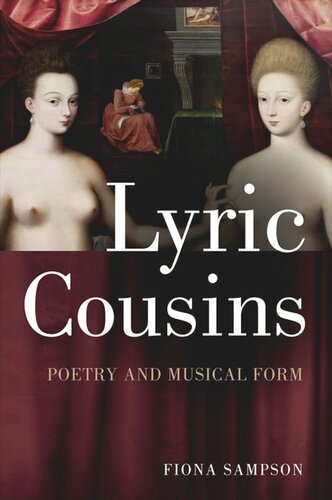

Most ebook files are in PDF format, so you can easily read them using various software such as Foxit Reader or directly on the Google Chrome browser.
Some ebook files are released by publishers in other formats such as .awz, .mobi, .epub, .fb2, etc. You may need to install specific software to read these formats on mobile/PC, such as Calibre.
Please read the tutorial at this link: https://ebookbell.com/faq
We offer FREE conversion to the popular formats you request; however, this may take some time. Therefore, right after payment, please email us, and we will try to provide the service as quickly as possible.
For some exceptional file formats or broken links (if any), please refrain from opening any disputes. Instead, email us first, and we will try to assist within a maximum of 6 hours.
EbookBell Team

4.0
86 reviewsToday, poetry and art music occupy similar cultural positions: each has a tendency to be regarded as problematic, ‘difficult’ and therefore ‘elitist’. Despite this, the audiences and numbers of participants for each are substantial: yet they tend not to overlap. This is odd, because the forms share early history in song and saga, and have some striking similarities, often summed up in the word ’lyric’.
These similarities include much that is most significant to the experience of each, and so of most interest to practitioners and audiences. They encompass, at the very least: the way each art-form is aural, and takes place in time; a shared reliance on temporal, rather than spatial, forms; an engagement with sensory experience and pleasure; availability for both shared public performance and private reading, sight-reading and hearing in memory; and scope for non-denotative meaning. In other words, looking at these elements in music is a way to look at them in poetry, and vice versa.
This is a study of these two formal craft traditions that is concerned with the similarities in their roles, structures, projects and capacities.